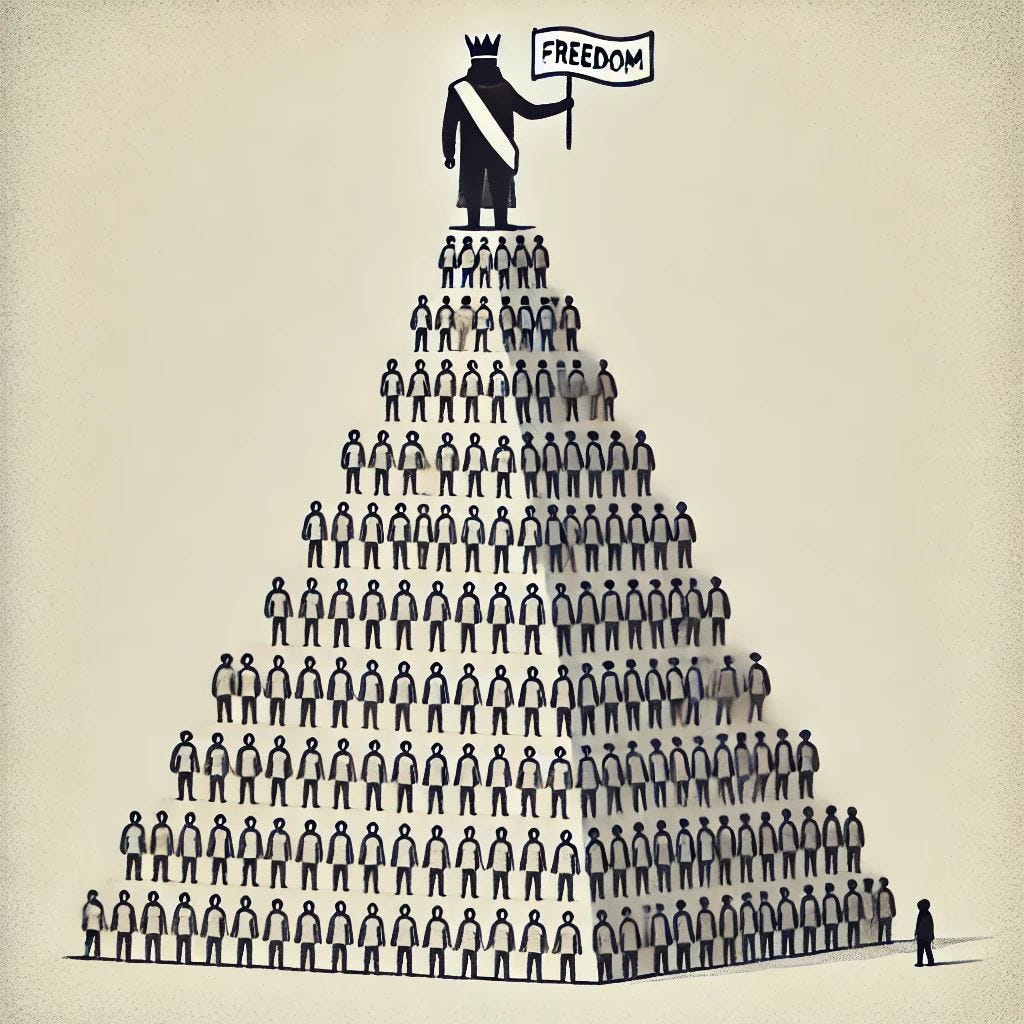
We often hear that equality is a restriction on freedom. That can certainly be the case, but more importantly, freedom is only truly freedom if it is equally distributed.
For instance, no one would claim that a medieval king is the only free person in his realm. No one would say that a dictator is truly free while everyone else suffers under their rule. We would rightfully call such societies unfree. Not only are the subjects in these systems unfree, but even the rulers themselves are not truly free—they are tyrants who dominate.
This is because freedom is an ethical or moral concept. It makes little sense to call someone free if their "freedom" is primarily domination over others. At the very least, we would not say that such a society is a free society.
This is key. For one reason or another—perhaps mere convention—many languages allow us to speak of freedom for individuals in societies that are, in reality, unfree. Yet this inconsistency disappears when we shift our focus to societies, countries, or communities as a whole. When we ask whether a society is free, it becomes clear that freedom requires equal distribution.
This exposes a central problem in how liberalism treats freedom. It often equates freedom with the absence of state interference while ignoring other forms of coercion and domination, as long as opportunities remain unrestricted. But in contemporary societies, those with capital do not just have significantly more opportunities to express themselves; their opportunities often come with domination and power over others—for instance, their employees.
Without a distribution of freedom as equal as feasible, we do not live in free societies. Instead, we live in societies where the few dominate the many.
If you are interested in my research, please consider visiting alexjeuk.com.
© 2025 Alexander Jeuk for the text. For the image see the caption.



